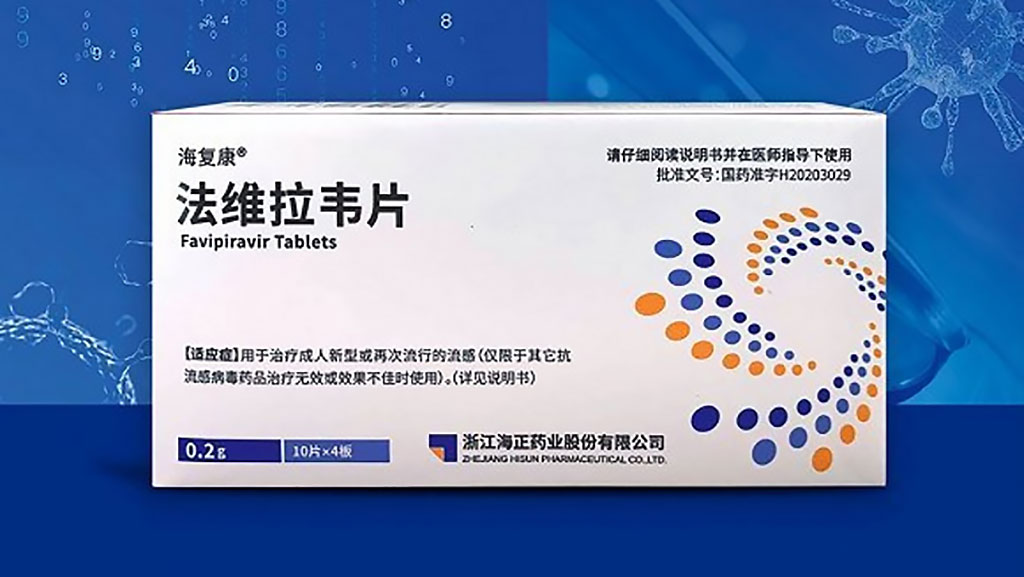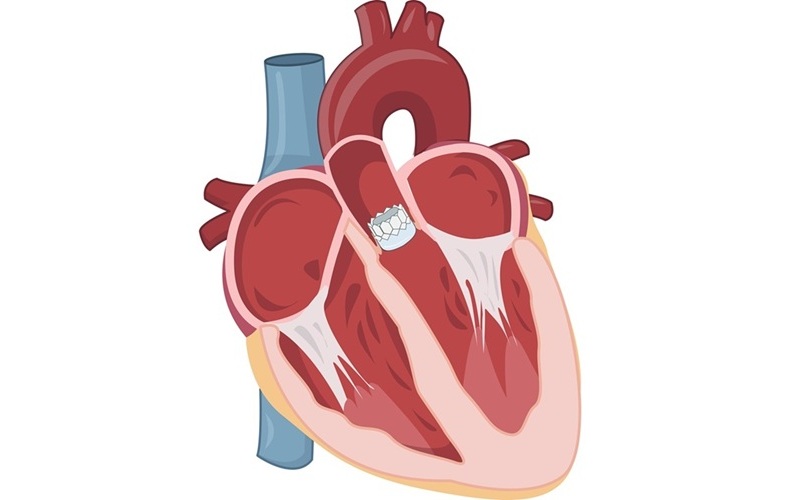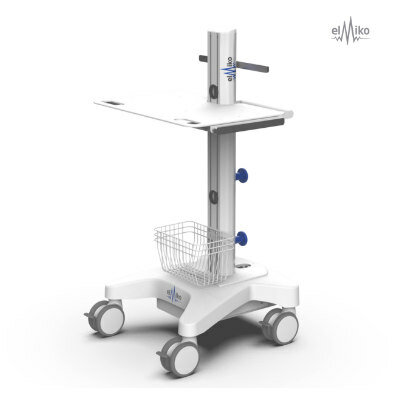Fujifilm’s Antiviral Becomes First Approved Drug to Treat Coronavirus in China
|
By HospiMedica International staff writers Posted on 23 Mar 2020 |

Image: Favilavir (Photo courtesy of Fujifilm Toyama Chemical)
Fujifilm Toyama Chemical’s (Tokyo, Japan) flu drug Favilavir, which is currently being promoted with the label, Avigan, has become the first-ever antiviral medicine to be approved for use as a treatment for COVID-19 in China. The National Medical Products Administration of China has approved Favilavir for treating the now-declared pandemic illness after it appeared to be effective in coronavirus patients during clinical studies.
Favilavir, which has proven to be an effective antiviral drug for fighting RNA infections by inhibiting the RNA-dependent RNA polymerase, or RdRp, is mainly used for treating influenza in Japan and China. According to medical authorities in China, Favipiravir had delivered encouraging outcomes in clinical trials of 340 coronavirus-infected patients in Wuhan and Shenzhen. The Ministry of Science and Technology of China has stated that Favilavir was shown to prevent COVID-19 from spreading and further damaging the health of patients in clinical studies. According to reports, the patients in Shenzhen who were administered Favilavir turned negative for the coronavirus after a median of four days after becoming positive, as compared to a median of 11 days for patients who were not treated with the drug. Additionally, X-rays showed improvements in the lung condition of 91% of the patients who were administered Favipiravir, as compared to 62% of patients who were not treated with the drug.
Despite its potential, the US Food and Drug Administration (FDA) has not yet regarded Favilavir as an effective treatment medicine for coronavirus. Nevertheless, doctors in Japan are said to be conducting clinical studies of Favilavir on coronavirus patients having mild to moderate symptoms in the hope of preventing the virus from multiplying in the patients.
Related Links:
Fujifilm Toyama Chemical
Favilavir, which has proven to be an effective antiviral drug for fighting RNA infections by inhibiting the RNA-dependent RNA polymerase, or RdRp, is mainly used for treating influenza in Japan and China. According to medical authorities in China, Favipiravir had delivered encouraging outcomes in clinical trials of 340 coronavirus-infected patients in Wuhan and Shenzhen. The Ministry of Science and Technology of China has stated that Favilavir was shown to prevent COVID-19 from spreading and further damaging the health of patients in clinical studies. According to reports, the patients in Shenzhen who were administered Favilavir turned negative for the coronavirus after a median of four days after becoming positive, as compared to a median of 11 days for patients who were not treated with the drug. Additionally, X-rays showed improvements in the lung condition of 91% of the patients who were administered Favipiravir, as compared to 62% of patients who were not treated with the drug.
Despite its potential, the US Food and Drug Administration (FDA) has not yet regarded Favilavir as an effective treatment medicine for coronavirus. Nevertheless, doctors in Japan are said to be conducting clinical studies of Favilavir on coronavirus patients having mild to moderate symptoms in the hope of preventing the virus from multiplying in the patients.
Related Links:
Fujifilm Toyama Chemical
Latest COVID-19 News
- Low-Cost System Detects SARS-CoV-2 Virus in Hospital Air Using High-Tech Bubbles
- World's First Inhalable COVID-19 Vaccine Approved in China
- COVID-19 Vaccine Patch Fights SARS-CoV-2 Variants Better than Needles
- Blood Viscosity Testing Can Predict Risk of Death in Hospitalized COVID-19 Patients
- ‘Covid Computer’ Uses AI to Detect COVID-19 from Chest CT Scans
- MRI Lung-Imaging Technique Shows Cause of Long-COVID Symptoms
- Chest CT Scans of COVID-19 Patients Could Help Distinguish Between SARS-CoV-2 Variants
- Specialized MRI Detects Lung Abnormalities in Non-Hospitalized Long COVID Patients
- AI Algorithm Identifies Hospitalized Patients at Highest Risk of Dying From COVID-19
- Sweat Sensor Detects Key Biomarkers That Provide Early Warning of COVID-19 and Flu
- Study Assesses Impact of COVID-19 on Ventilation/Perfusion Scintigraphy
- CT Imaging Study Finds Vaccination Reduces Risk of COVID-19 Associated Pulmonary Embolism
- Third Day in Hospital a ‘Tipping Point’ in Severity of COVID-19 Pneumonia
- Longer Interval Between COVID-19 Vaccines Generates Up to Nine Times as Many Antibodies
- AI Model for Monitoring COVID-19 Predicts Mortality Within First 30 Days of Admission
- AI Predicts COVID Prognosis at Near-Expert Level Based Off CT Scans
Channels
Critical Care
view channel
Mechanosensing-Based Approach Offers Promising Strategy to Treat Cardiovascular Fibrosis
Cardiac fibrosis, which involves the stiffening and scarring of heart tissue, is a fundamental feature of nearly every type of heart disease, from acute ischemic injuries to genetic cardiomyopathies.... Read more
AI Interpretability Tool for Photographed ECG Images Offers Pixel-Level Precision
The electrocardiogram (ECG) is a crucial diagnostic tool in modern medicine, used to detect heart conditions such as arrhythmias and structural abnormalities. Every year, millions of ECGs are performed... Read moreSurgical Techniques
view channel
Bioprinted Aortas Offer New Hope for Vascular Repair
Current treatment options for severe cardiovascular diseases include using grafts made from a patient's own tissue (autologous) or synthetic materials. However, autologous grafts require invasive surgery... Read more
Early TAVR Intervention Reduces Cardiovascular Events in Asymptomatic Aortic Stenosis Patients
Each year, approximately 300,000 Americans are diagnosed with aortic stenosis (AS), a serious condition that results from the narrowing or blockage of the aortic valve in the heart. Two common treatments... Read more
New Procedure Found Safe and Effective for Patients Undergoing Transcatheter Mitral Valve Replacement
In the United States, approximately four million people suffer from mitral valve regurgitation, the most common type of heart valve disease. As an alternative to open-heart surgery, transcatheter mitral... Read morePatient Care
view channel
Portable Biosensor Platform to Reduce Hospital-Acquired Infections
Approximately 4 million patients in the European Union acquire healthcare-associated infections (HAIs) or nosocomial infections each year, with around 37,000 deaths directly resulting from these infections,... Read moreFirst-Of-Its-Kind Portable Germicidal Light Technology Disinfects High-Touch Clinical Surfaces in Seconds
Reducing healthcare-acquired infections (HAIs) remains a pressing issue within global healthcare systems. In the United States alone, 1.7 million patients contract HAIs annually, leading to approximately... Read more
Surgical Capacity Optimization Solution Helps Hospitals Boost OR Utilization
An innovative solution has the capability to transform surgical capacity utilization by targeting the root cause of surgical block time inefficiencies. Fujitsu Limited’s (Tokyo, Japan) Surgical Capacity... Read more
Game-Changing Innovation in Surgical Instrument Sterilization Significantly Improves OR Throughput
A groundbreaking innovation enables hospitals to significantly improve instrument processing time and throughput in operating rooms (ORs) and sterile processing departments. Turbett Surgical, Inc.... Read moreHealth IT
view channel
Printable Molecule-Selective Nanoparticles Enable Mass Production of Wearable Biosensors
The future of medicine is likely to focus on the personalization of healthcare—understanding exactly what an individual requires and delivering the appropriate combination of nutrients, metabolites, and... Read more
Smartwatches Could Detect Congestive Heart Failure
Diagnosing congestive heart failure (CHF) typically requires expensive and time-consuming imaging techniques like echocardiography, also known as cardiac ultrasound. Previously, detecting CHF by analyzing... Read moreBusiness
view channel
Expanded Collaboration to Transform OR Technology Through AI and Automation
The expansion of an existing collaboration between three leading companies aims to develop artificial intelligence (AI)-driven solutions for smart operating rooms with sophisticated monitoring and automation.... Read more



















